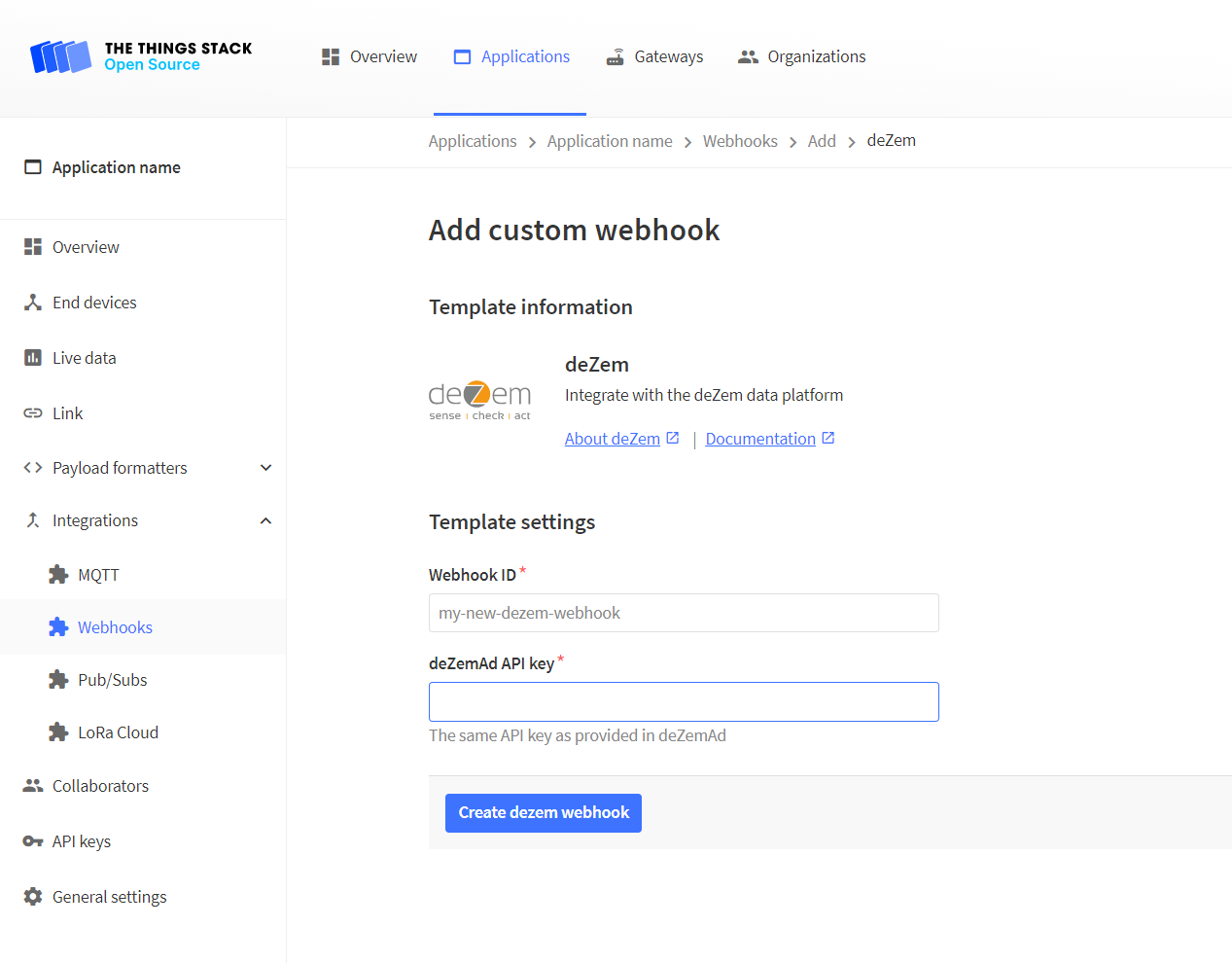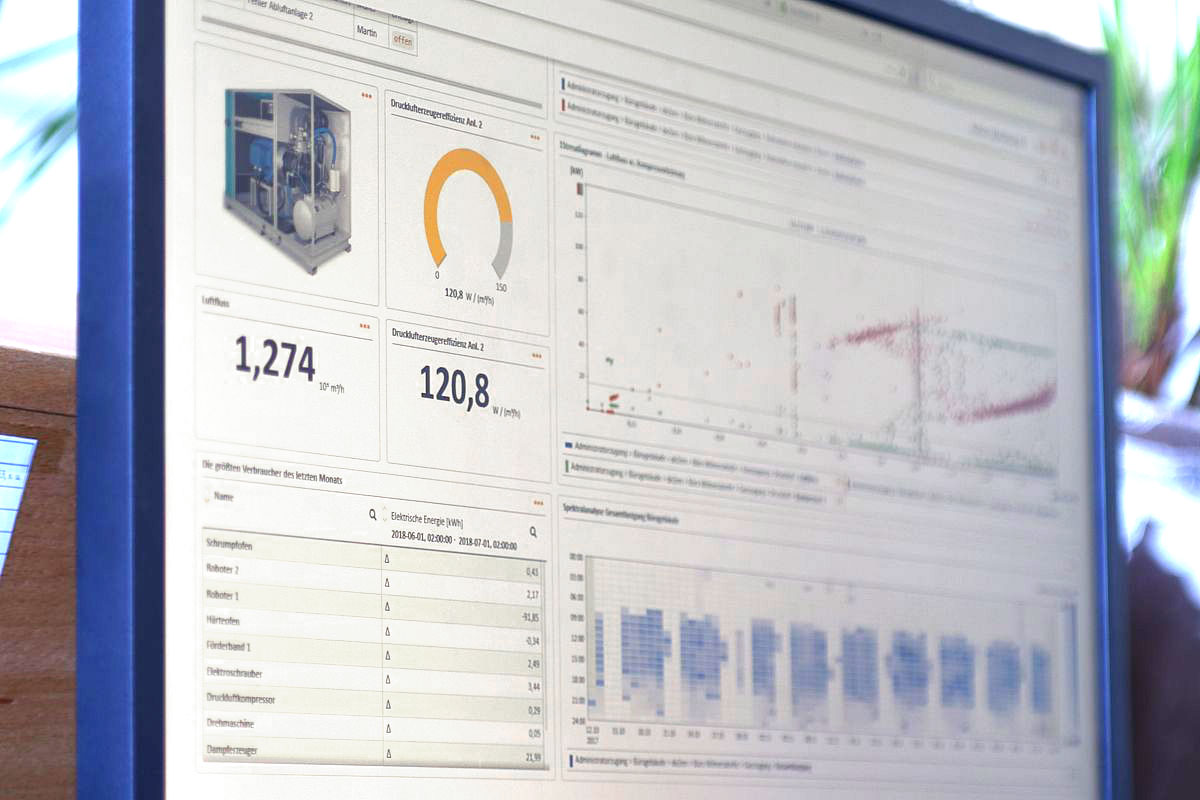The deZem IoT data management system facilitates an increased efficiency and productivity of plants, processes and infrastructure. To this end, deZem provides a modular solution to collect sensor data from very heterogeneous sources on a single platform, and a large variety of online analysis tools. As LoRaWAN® devices are great for effortless data acquisition in the field, the deZem system integrates with The Things Stack.
Prerequisites
- deZem account
- User rights for deZemAd’s technical tree
Setup
In the technical tree of deZemAd, create a new device of type LoRaWAN TTS interface.

Configure the same API key in deZemAd and in deZem’s Webhook template.

Analyze and Visualize
Create analyses and vizualisations for use in production.
